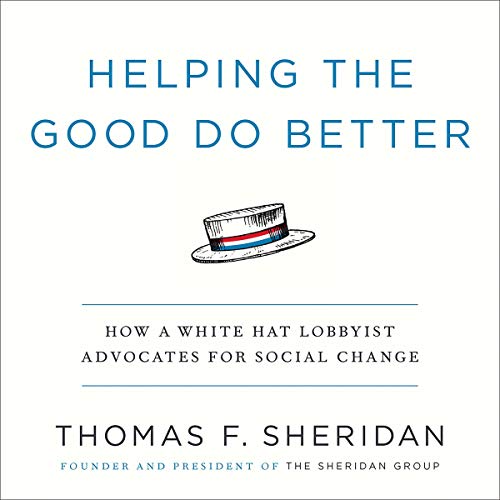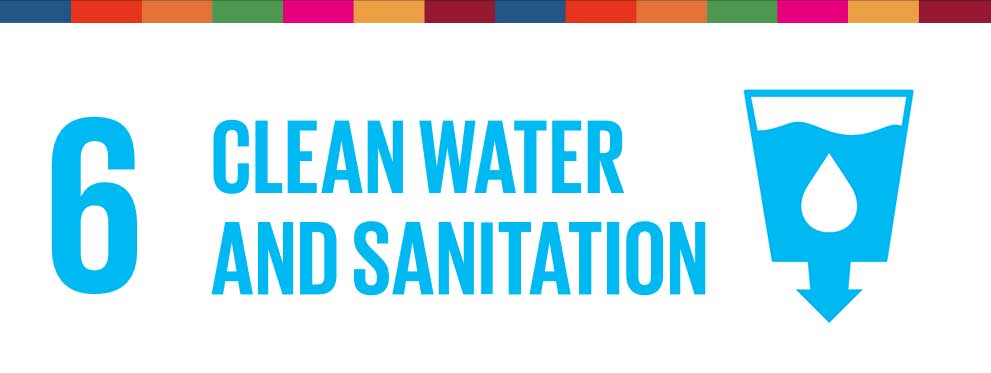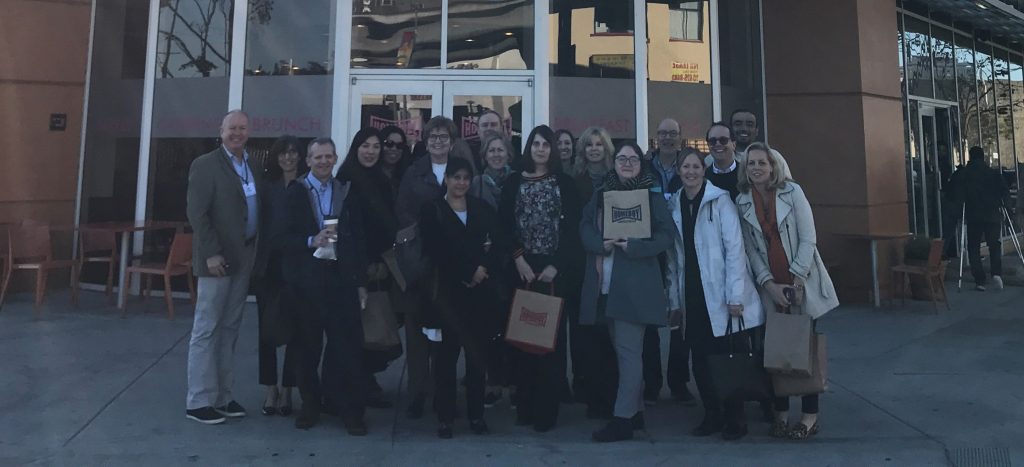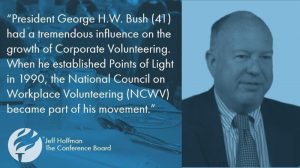
By Sophia A. Muirhead and Jeff Hoffman
In 1943, much of the world was at war. It wasn’t “business as usual.” Companies that produced everything from automobiles, motion pictures, to food staples during peacetime had shifted production to support the war effort. Businesses were giving to charity to help people whose lives were disrupted by the effects of the war and also to organizations that were assisting their employees during this extraordinary time.
In the United States, The Conference Board was just 27 years old, but was already established as the leader in knowledge-sharing among businesses. Seventy-five years later, business continues to be at the forefront of corporate philanthropy and corporate citizenship. The Conference Board remains at the center of this activity, while striving to foster collaborations that measure the outputs of corporate giving, as outlined below.
In the depths of World War II, The Conference Board began keeping track of corporate contributions activity, generating a record that became a bi-annual, and later, an annual report on corporate contributions circa 1947. That report that began in 1943 is still alive today. It was merged into Giving in Numbers in 2012, which is conducted today by the Committee Encouraging Corporate Philanthropy, in association with The Conference Board.
In the depths of World War II, The Conference Board began keeping track of corporate contributions activity…That report that began in 1943 is still alive today…
Corporate philanthropy was not the norm at that time. Until the early 1900s, corporate contributions were viewed negatively, as “giving away” shareholder assets without their consent – a sentiment that economist Milton Friedman espoused until his death. However, the passage of the Internal Revenue Act of 1935 allowed companies to deduct five percent of their pretax earnings for charitable donations. This was partially a response to some states allowing some corporate contributions beginning during the First World War.
By 1950, the world was rebuilding and expanding. Baby Boomers were being born and corporate philanthropy was becoming mainstream. The Conference Board created in that year one of its early Councils to bring together executives from this emerging profession. The Corporate Contributions Council, as it was called, still exists today as the Corporate Social Responsibility Council.
Despite federal and state tax laws that supported corporate philanthropy, a court case settled the issue of the legality of corporate contributions. In 1953, in A. P. Smith Manufacturing. Co. v. Barlow, et. al., the New Jersey Supreme Court ruled that corporate contributions for purposes other than a direct benefit to the business are legal. In the mid-fifties, many corporate foundations were established as a direct result of this ruling (including in 1956, The Walt Disney Company Foundation that Jeff, a co-author of this essay, later managed).
The first corporate matching gift program began at General Electric Company in 1954, a year after the Smith decision. Today, matching gifts programs have become commonplace. Originally, many programs matched gifts only to higher education. The shift began to change as all educational institutions were eligible. Today, a good portion of matching gifts programs cover most U.S. 501(c)(3) organizations (i.e., federally Registered Charities).
Although early corporate contributions were not publicized, after the urban riots of the 1960s, corporations felt compelled to abandon anonymity in their giving. This led to a norm of broad dissemination of corporate gifts and a major turning point in corporate giving. Responding to social activists who challenged corporate America on its environmental and minority hiring practices, among other things, companies slowly began to publicize their contributions. Nowadays, corporations are not shy about philanthropic publicity, particularly as evidence grows that good corporate citizenship benefits employee morale and helps promote a corporation’s reputation, image, and brands.
At The Conference Board’s 1984 workshop on “The Future of Corporate Contributions,” Waldemar A. Nielsen reported that “[prior to 1969, corporate philanthropy was] sluggish, smug, with little interaction and serious discussion of professional problems. It was a group of little people wrapped in mythology and self-righteousness.… [In 1984,] you are in the most dynamic part of philanthropy…. Philanthropy is just at the beginning of its most creative period.” Contributions figures confirmed Nielsen’s observations. By the mid-1980s, corporate contributions for all U.S. companies had increased from $343 million in 1951 to $6.2 billion in 1987.
By the mid-1980s, corporate contributions for all U.S. companies had increased from $343 million in 1951 to $6.2 billion in 1987.
Employee volunteering had been around for quite a few years, but really exploded in the 1990s. During this decade, The Conference Board in conjunction with Points of Light wrote two pieces of important research. The first in 1993 – “Corporate Volunteer Programs: Benefits to Business” – was the first comprehensive report written on the benefits of employee volunteer programs, and found that corporate volunteer programs were increasingly valued for their role in meeting strategic business goals, helping build a quality workforce, continuing to provide public and community relations benefits, are serving restructuring and downsizing, and targeting education programs as their top priority. In 1997, both organizations expanded on the 1993 research with the publication of “Corporate Volunteerism: How Families Make A Difference.”
In the late 1990s, companies were also appending strategic philanthropy to a broader notion of corporate citizenship that was not solely dependent on corporate contributions. As corporations expanded globally and faced intense competition (as well as varying cultural and business values), resource limitations, and a need for new relationships with other businesses, governments, and global communities, they began to recognize that their economic, environmental, and social capital had powerful impacts on communities worldwide. To strengthen business ties to these communities and improve the climate for commercial success, leading global companies devised approaches to more effectively manage their actual and potential economic, environmental, and social impacts.
Strategic philanthropy, community investments, employee engagement, social impact, purpose, and the various other ways that we nuance a company’s efforts to benefit society has an ever-increasing importance with how a company operates, is perceived, and impacts the world. Last year, in recognition of this, The Conference Board established the Center on Corporate Citizenship & Philanthropy. It encompasses three Councils (CSR Council, Philanthropy & Engagement, Global CSR & Philanthropy); the annual Corporate Philanthropic Practice Conference; the Giving Thoughts research series; a Center Blog; and, cutting-edge research and benchmarking on such topics as disasters, social impact measurement, and the materiality of corporate citizenship.
“At the century’s turn: global corporate citizenship as a business has become increasingly global. Companies encounter intensifying competition, and with it, organizational, governing, and technological challenges across national and business cultures. As a consequence, companies increasingly need to consider how best to balance demands for growth against demands from society that widen the primary economic mission of the business enterprise into new areas. These societal demands from governments and communities are particularly visible in areas like the environment, where the theme of “sustainable development” is gaining attention among global firms, a number of which have market capitalizations that are larger than the national budgets of many developing countries.”
At the century’s turn: global corporate citizenship as a business has become increasingly global. Companies encounter intensifying competition, and with it, organizational, governing, and technological challenges across national and business cultures.
These words were written in a 1999 contributions report by Sophia A. Muirhead, the co-author of this essay, who was then a Senior Research Associate at The Conference Board. She is currently Senior Vice President, General Counsel and Secretary of The Conference Board.
The same words could have been written for today. The Conference Board has led the way in corporate citizenship since 1943 as a convener and thought partner expanding today as The Conference Board’s Center of Corporate Citizenship & Philanthropy, with its groundbreaking work on the valuing company’s efforts to both society and the business. Its mission continues to be relevant to today’s businesses: to help business improve performance and better serve society. It will be fun to see what the next 75 years brings!
First published by The Conference Board on November 6, 2018
https://www.conference-board.org/CCP75









